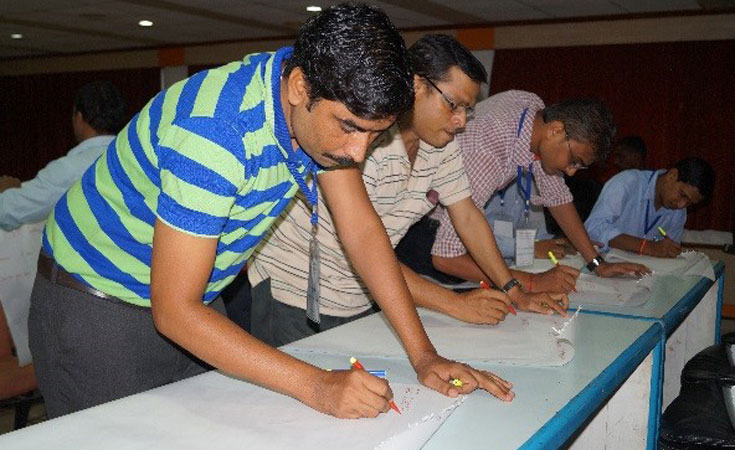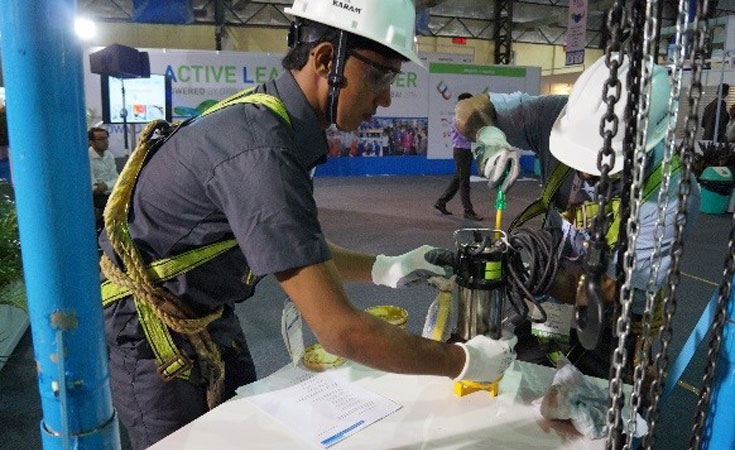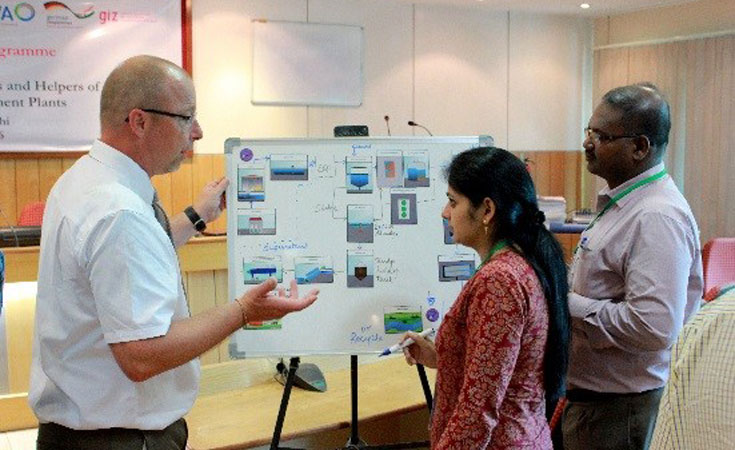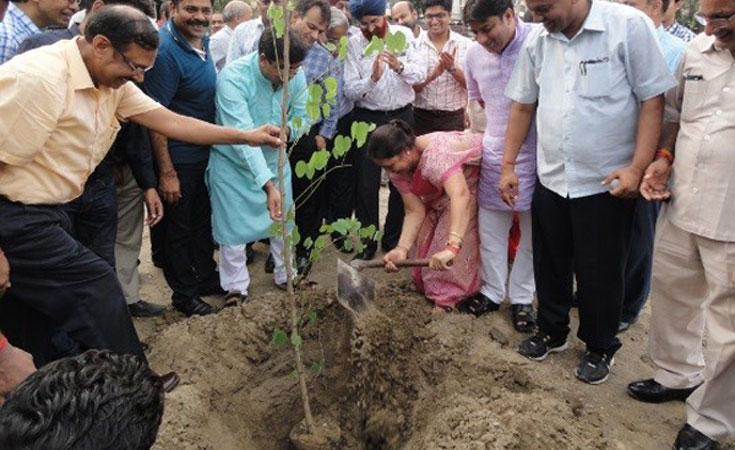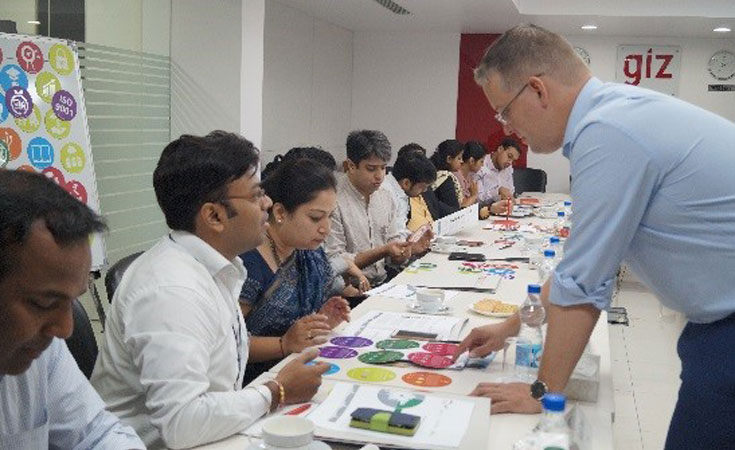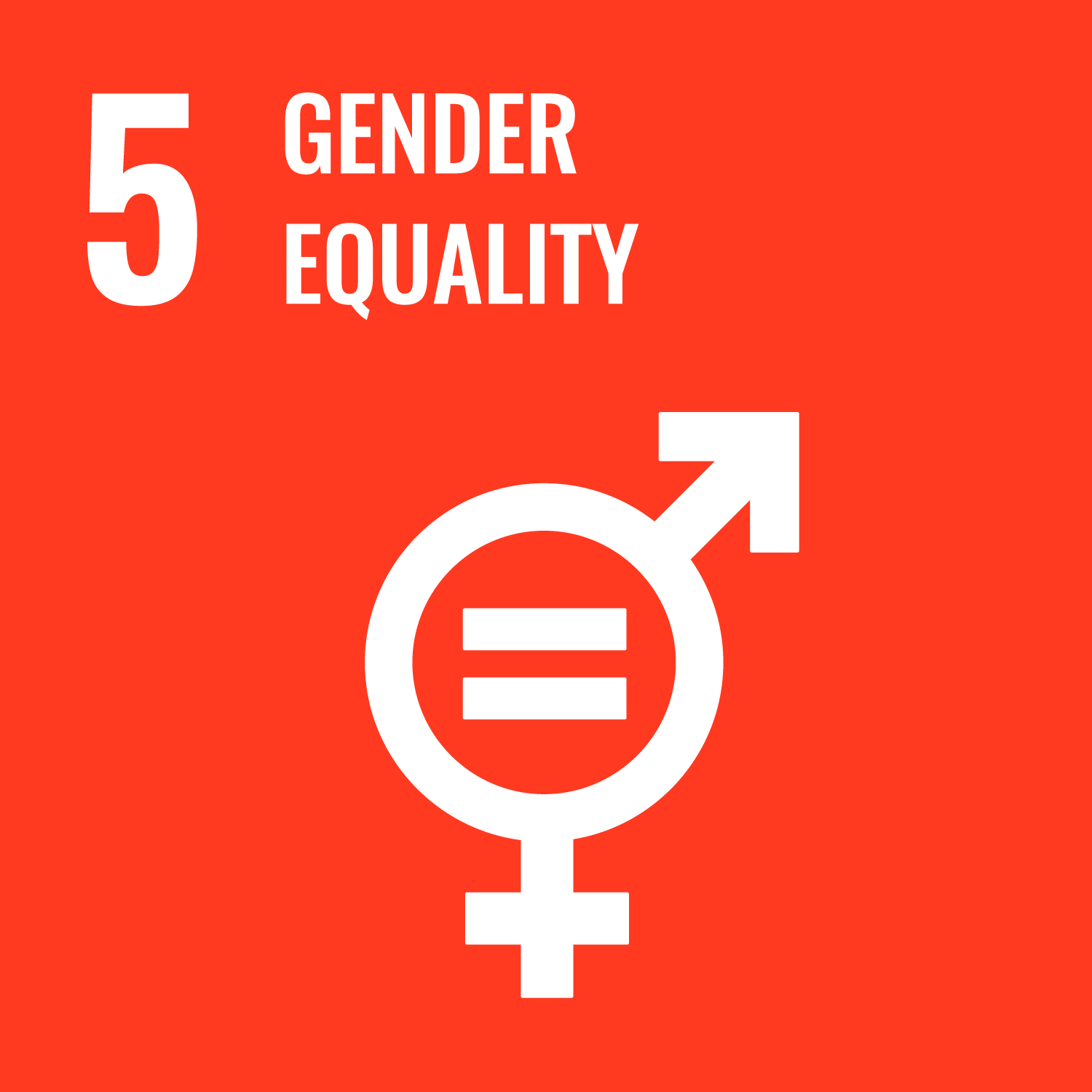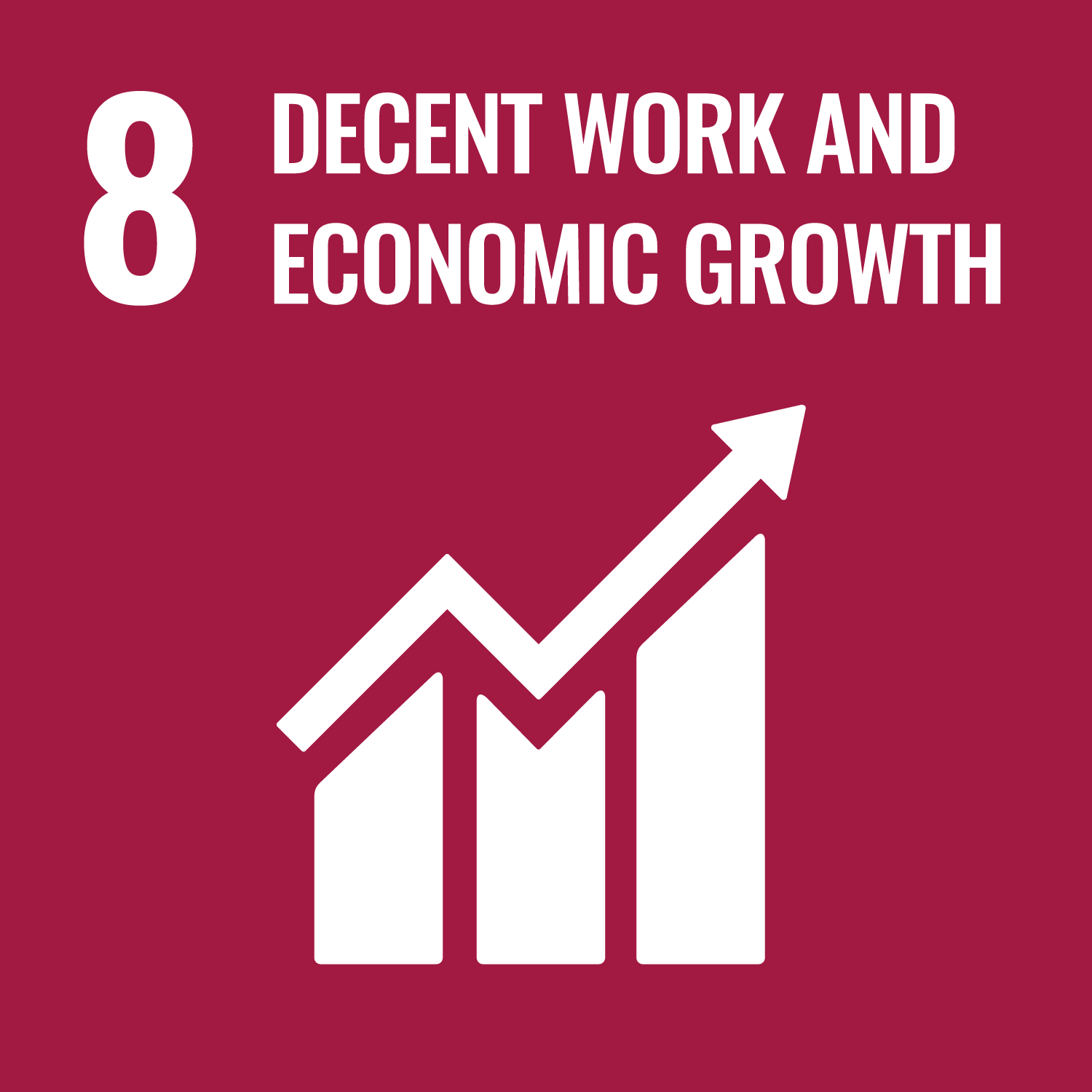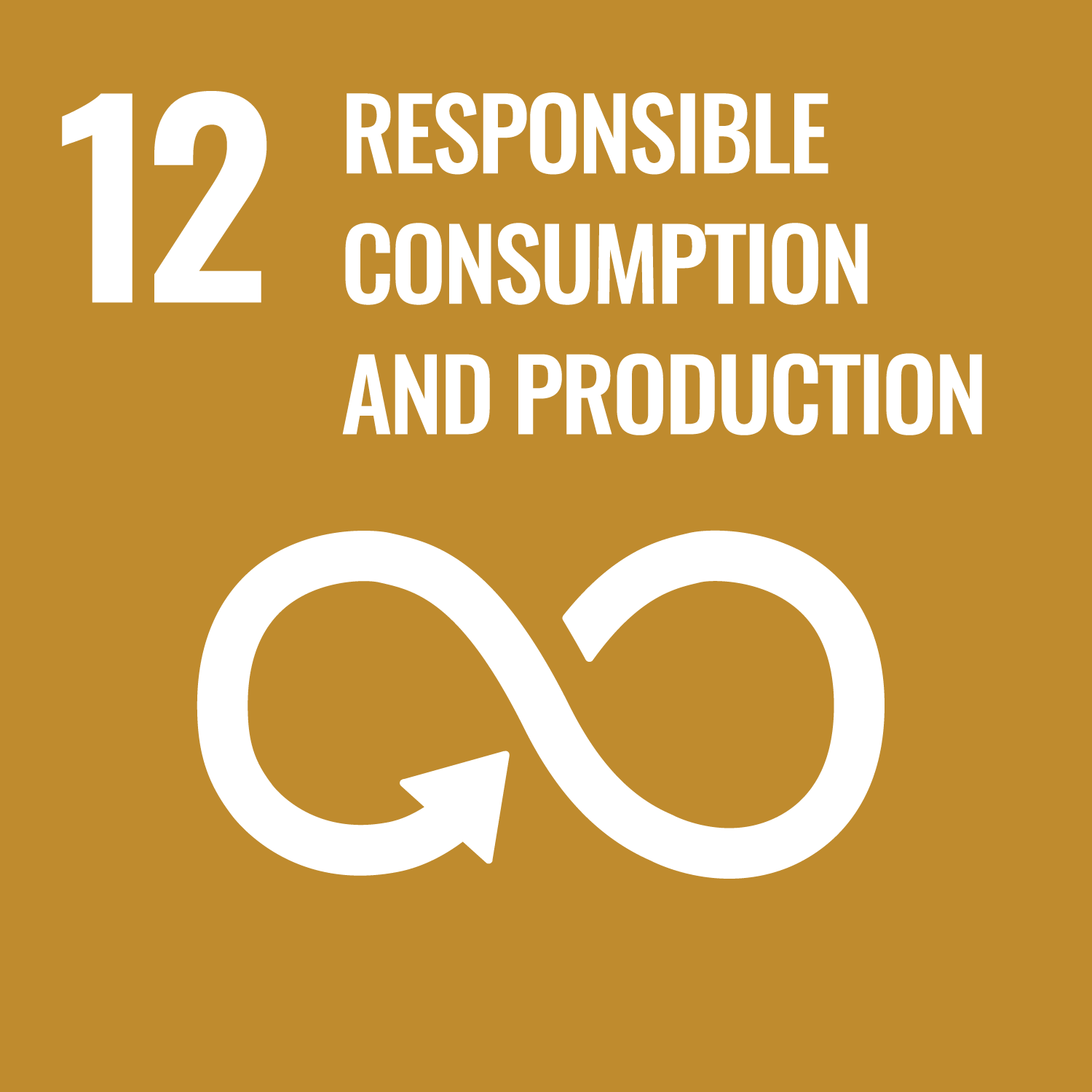Sustainable Environment-friendly Industrial Production [SEIP]
Objective
- Reduce industrial pollution at 3 project sites by 20%
- Promote women entrepreneurs in industrial areas
- Replicate best practices
- Have policies/programs/action plans that reduce pollution and increase resource efficiency in place at the state and national level
Description
SEIP is a joint project of Deutsche Gesellschaft für Internationale Zusammenarbeit (GIZ) GmbH and the Indian Ministry of Environment, Forest and Climate Change (MoEFCC) within the framework of the Indo-German technical cooperation. SEIP works on industrial environmental management and focuses on environmental problems related to wastewater and waste management in industrial areas. In three selected states – Uttarakhand, Gujarat and Delhi – the project showcases sustainable technical solutions and business/management models on a pilot basis for subsequent upscaling and replication. The overall objective of the project is to enable private and public sector actors to jointly implement strategies to achieve an efficient, environment- and climate friendly industrial development.
The project’s outputs are grouped into three areas:
- Output A: Environment-oriented modernization of three industrial areas (showcasing solutions)
- Output B: Establishing appropriate framework conditions at the national and state levels
- Output C: Knowledge management and dissemination
The project’s activities are targeted at the improvement of wastewater conveyance and storm water drainage systems, the treatment, recycling and reuse of wastewater, solid waste management, the monitoring of wastewater discharge, as well as modifications of production processes to increase resource efficiency and decrease pollution at the company level. These activities are complemented by efforts to improve framework conditions at the state and national level to incentivise reduced pollution and more efficient production.
Project partners are private stakeholders, such as industry associations, operators of industrial sites and individual companies, as well as relevant governmental entities at the state and national level.
Field of intervention
- Industrial waste water management [waste water treatment, reuse and recycle, conveyance systems, disposal systems, monitoring systems, business/management models for infrastructure and services, technology transfer and technology facilitation mechanisms]
- Industrial and commercial waste management [co-processing of waste, hazardous waste management, sewage sludge management, business/management models for sustainable infrastructures and services, technology transfer and technology facilitation mechanisms]
Targeted beneficiaries
- Civil society, individual companies, managers of industrial parks, public agencies
Achievements
- Development of solution to modernise existing Common Effluent Treatment Plants (CETPs)
- Infrastructure and management of industrial wastewater conveyance and storm water drainage systems
- Improvement of waste management of sludge and recyclable waste generated by CETPs and Effluent Treatment Plants (ETPs)
- Improvement of monitoring systems of discharged industrial wastewater through online monitoring
- Development of market-based scheme to systematically train operators of industrial wastewater treatment plants
- Showcasing of solutions to improve cleaner production processes and to reduce pollution generated for dissemination and replication
- Raising awareness and participation through Environmental, Cleanliness and Plantation Drives to involve stakeholders in change processes towards the improvement of the environmental situation at industrial areas.
- Set-up of an Environmental Technology Platform to facilitate information exchange on technologies related to industrial wastewater and to facilitate technology transfer
- Development of a “green” rating system for industrial areas to incentivise the development of “green” industrial areas and to benchmark the planning and retrofitting of industrial areas from a sustainability perspective
Publications/Knowledge Products
- Common Effluent Treatment Plants: Overview, Technologies and Case Examples
- Environment Friendly Techniques for Textiles Industries overview, approach and case examples
- Environment Friendly Techniques for Wastepaper Based Pulp and Paper Industries overview, approach and case examples
- Final Report on Occupational Mapping in the Field of Industrial Wastewater Management
- Greening of GIP Jadcherla, Telangana
- Guidelines for Sustainable Industrial Areas (SIA)
- Planning and Design of ALEAP Green Industrial Park (A-GRIP), Nandigama
- Planning for Sustainable Industrial Parks environmental quality, technical quality, economic & social quality
COUNTRY
India
DURATION
March 2015 - February 2018
